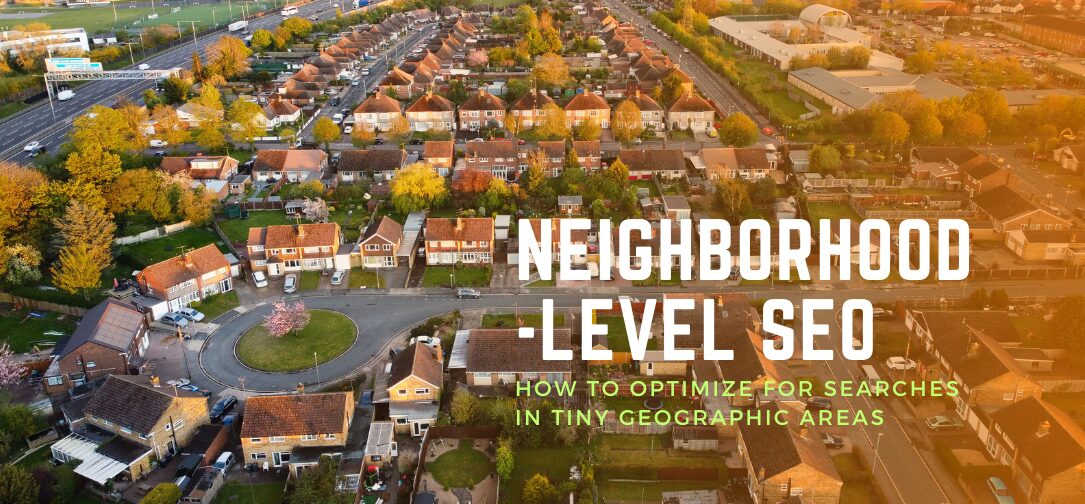When people think of SEO, they often imagine targeting big cities, national audiences, battling competitors while climbing the ranks using massive keywords like “personal injury lawyer” or “best tacos in Brooklyn.” But the truth is, the most powerful and overlooked SEO strategy today is hyperlocal. We’re talking about optimizing for neighborhoods—not just cities or zip codes, but blocks, boroughs, and micro-communities.
This is neighborhood-level SEO: the art of getting your business to show up where it matters most—on the phones of people right down the street. If you’re a coffee shop in Astoria, a fitness trainer in Logan Square, or a car accident lawyer in Jersey City, this is how you get found.
Why Neighborhood-Level SEO Matters
Search engines like Google are now laser-focused on delivering results based on the user’s real-time location. They’re no longer showing the same listings for someone searching “dentist” in downtown Denver versus someone two miles away in Capitol Hill. Even a few blocks can make a difference.
For businesses, that means you don’t have to dominate an entire city’s rankings. You just need to be the most relevant, visible option in your immediate area. A New York City personal injury lawyer might get lost in the noise city-wide, but could still generate consistent leads by owning search results in a dense, high-demand neighborhood like Harlem or the Lower East Side.
Speak the Local Language
People don’t search by zip code—they search by what’s familiar: neighborhood names, parks, intersections, or nearby subway stops. Your website needs to reflect that reality.
Instead of relying on broad phrases like “law firm in Chicago,” try naturally including hyper-specific language like “slip and fall attorney in Wicker Park” or “family lawyer near Logan Square.” These phrases connect directly with local searchers and send clearer signals to search engines.
This kind of neighborhood-aware language should show up in your:
- Page titles and headers
- Service descriptions and blog posts
- Image alt text and internal links
Be as specific as your customers are. If your storefront is “right across from Prospect Park,” say that. If you’re “steps from the L train,” work it in. Local landmarks and terms make your site feel more authentic to people—and to Google.
Optimize Your Google Business Profile
Your Google Business Profile (formerly Google My Business) is your most powerful weapon in neighborhood SEO. It’s where local search results live—especially for mobile users who are looking for solutions nearby.
To boost visibility in hyperlocal searches, go beyond the basics:
- Write a business description that names the exact neighborhood you serve.
- Add high-quality, geotagged images of your storefront, signage, and interior.
- Ask for customer reviews that mention your location or local landmarks.
- Post regularly with updates about neighborhood events, offers, or changes in hours.
These steps not only help you show up in the map pack—they tell Google that your business is tied to a real place, with real activity, in a specific part of town.
Build Neighborhood-Focused Content Hubs
One of the smartest moves in hyperlocal SEO is creating dedicated landing pages or blog posts for specific neighborhoods you serve. This approach is especially effective for service-area businesses.
Let’s say you’re an HVAC company in Philly. Instead of one page that generically lists all the neighborhoods you cover, build individual pages like:
- HVAC repair in Fishtown
- AC installation in Northern Liberties
- Furnace maintenance in South Philly
Each page should have original content tailored to the neighborhood—include customer testimonials from that area, address common local service concerns, or highlight your team’s experience working nearby. Google loves unique, localized content that doesn’t feel mass-produced.
Similarly, a car accident lawyer in Jersey City can create strong, neighborhood-specific content clusters targeting Journal Square, The Heights, or Greenville. These focused hubs allow you to compete in smaller search pools—where ranking is easier, and conversions are often higher.
Build Local Authority (Without Sounding Spammy)
Local backlinks can be a huge trust signal for Google—but only if they’re from sources that actually matter in your area. A single link from a well-read neighborhood newsletter or community blog can carry more weight than a dozen generic directory links.
You can build neighborhood-level authority by:
- Partnering with local events and asking for mentions on their websites
- Joining nearby business associations or BIDs (Business Improvement Districts)
- Collaborating with local influencers or content creators
- Getting featured in neighborhood news sources, blogs, or social media pages
Even participation in community groups on Facebook or Nextdoor can help your business become more visible in the local digital ecosystem. Google is increasingly sensitive to brand presence across informal, non-website platforms.
Don’t Ignore the Technical Foundation
Just because you’re targeting small areas doesn’t mean you can skip technical SEO. The backend still matters—sometimes more than ever.
Make sure your site is mobile-friendly, fast-loading, and easy to navigate. Your name, address, and phone number (NAP) should be consistent across all listings. Local schema markup should be added to your site to help search engines tie your content to specific places.
Your meta titles and descriptions should also reflect neighborhood-specific keywords. It’s a simple way to reinforce your hyperlocal focus without being intrusive to users. And don’t forget your internal linking—if you’ve created multiple neighborhood pages, they should connect logically to help both users and bots move smoothly through your site.
Final Thoughts
Neighborhood-level SEO is where local businesses can truly shine. You don’t have to take over an entire metro area—you just need to show up for the people nearby who are ready to walk through your door or pick up the phone.
Whether you’re doing SEO for law firms, salons, real estate agents, or even tech repair shops, focusing on hyper-specific areas can deliver higher intent traffic, better conversion rates, and more meaningful community connections.
So stop thinking like a national brand and start thinking like a neighbor. Own your block. Be the best choice in your corner of the city. When it comes to modern SEO, relevance beats reach—and nowhere is that more obvious than right in your own backyard.

































